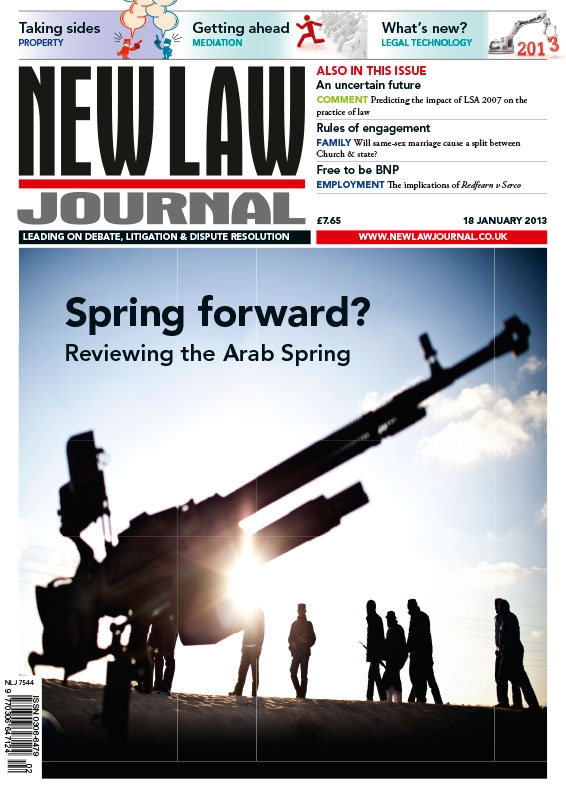
Andrew Hopper QC studies the impact of LSA 2007 on the practice of law
Marc Weller reviews the Arab Spring as it enters its third year
Janette Porteous considers whether same-sex marriage will cause a split between the Church & state
Anna Macey analyses the implications of the decision in Redfearn v Serco
John Summers considers two recent important property law decisions
Richard Scorer examines the extent of vicarious liability for sexual abuse
Tallington Lakes Ltd and another v Ancasta International Boat Sales Ltd [2012] EWCA Civ 1712, [2013] All ER (D) 14 (Jan)
Phillips and another v Francis and another [2012] EWHC 3650 (Ch), [2012] All ER (D) 225 (Dec)
Bijlani v Stewart and others UKEAT/0228/11/RN, [2013] All ER (D) 35 (Jan)
Aldwinkle v Adecco (UK) Ltd UKEAT/0208/12/LA, [2013] All ER (D) 27 (Jan)
MOVERS & SHAKERS

NLJ Career Profile: Mark Hastings, Quillon Law
Mark Hastings, founding partner of Quillon Law, on turning dreams into reality and pushing back on preconceptions about partnership

Kingsley Napley—Silvia Devecchi
New family law partner for Italian and international clients appointed

Mishcon de Reya—Susannah Kintish
Firm elects new chair of tier 1 ranked employment department






